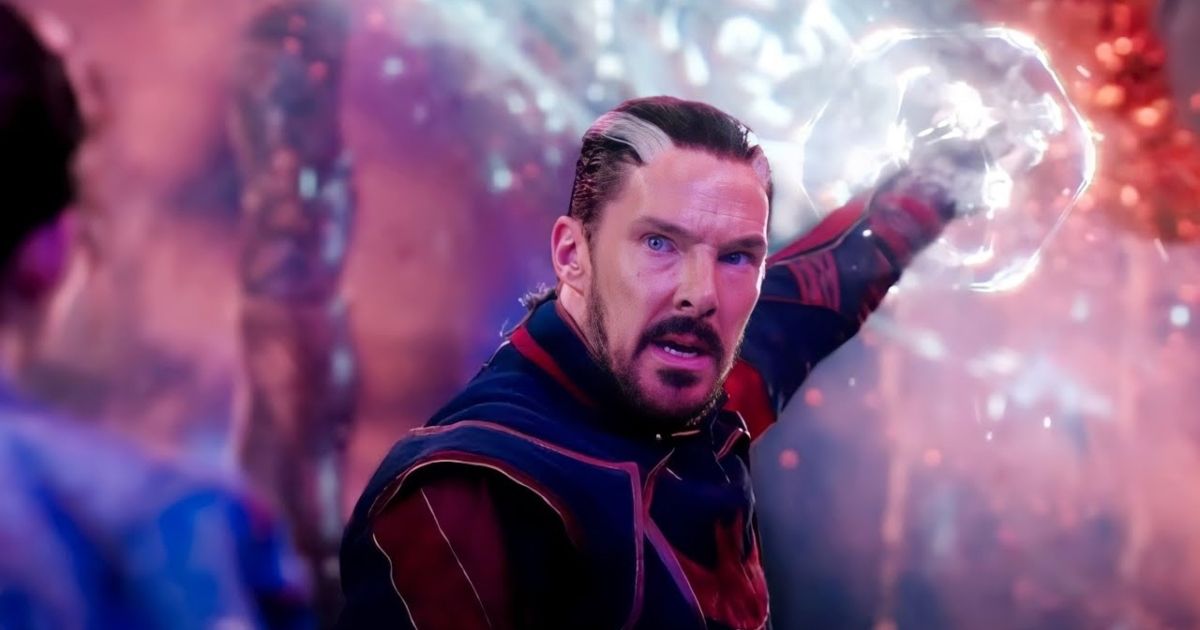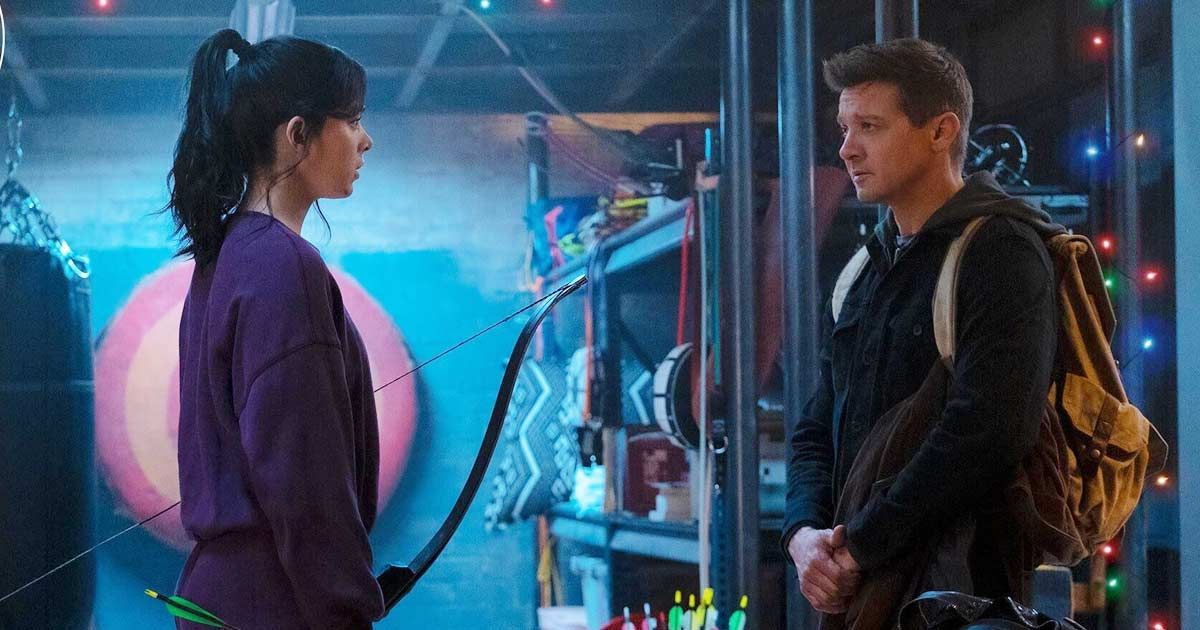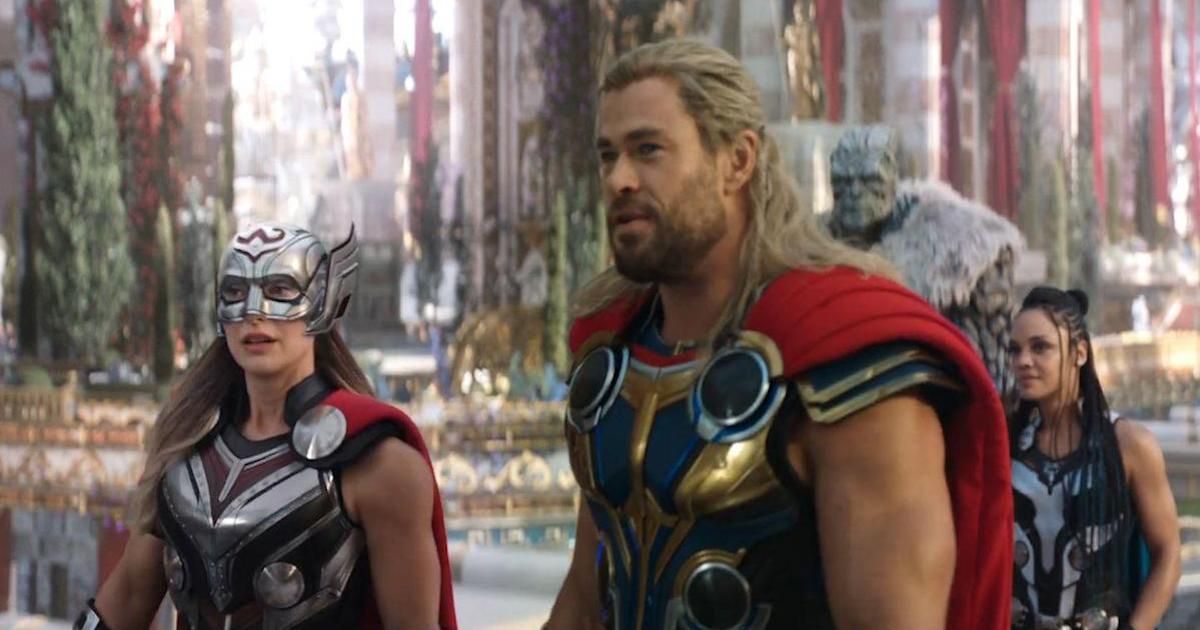It’s no secret that the Marvel Cinematic Universe is the top dog in Hollywood right now. What started nearly 15 years ago as a theatrical experiment to see if various different comic-book characters could work on screen and then be cohesively brought together in bigger crossover events, has turned into an entertainment juggernaut that is providing a near-constant stream of new movies, shows and other content that is consistently dominating pretty much any other content that tries to challenge it. With the recent release of Black Panther: Wakanda Forever, the franchise has officially released 30 theatrical films, in addition to eight series and one “special presentation” for Disney+. The mega-brand isn’t slowing down either, as there are another dozen films and at least 15 Disney+ originals set for release over the next several years.
On paper, this all sounds like a dream come true for Marvel fans. There are characters and stories being adapted to the big screen that comic-book fans had only ever dreamed of seeing before. With the likes of Kang the Conqueror, Namor, Moon Knight, Ms. Marvel, She-Hulk and so many fan favorites being introduced to the MCU lately, one would think that the cinematic universe is doing better now than it ever has. Unfortunately, it’s just not. That’s not to say these films and shows haven’t been successful in a business sense; there’s essentially no arguing that. However, as Phase Four of the MCU comes to a close with the new Black Panther sequel, it has become painfully apparent that the MCU just doesn’t carry the same magic and luster that it once did. Here’s why that might be:
Following Phase Three
The third phase of the MCU was when the franchise was really at its peak. It had been thoroughly established through the previous two phases, which introduced key characters, brought the Avengers together, and built out the sandbox that all of these movies could exist and play within. By the time Phase Three came along, every MCU movie was an event that couldn’t be missed. Many of the series’ best films come from this era; ranging from Captain America: Civil War to Black Panther, Thor: Ragnarok, Avengers: Infinity War, and more. Phase Three consisted of 11 films, which each grossed an average of over $1 billion at the international box office. Ultimately, Phase Three concluded with the end of the Infinity Saga, one of the biggest films of all time, Avengers: Endgame, and the epilogue of sorts that followed it, Spider-Man: Far From Home.
After Phase Three, the MCU had a year-long break built into its schedule to allow audiences at least a bit of time to breathe between films. However, with the onset of a global pandemic, that break was extended further than originally planned. Phase Four eventually kicked off with the MCU’s first Disney+ series, WandaVision, in January 2021. That was followed by several more new Disney+ series before the first film of the phase, Black Widow, was released that July. One common complaint that emerged among fans throughout the phase was that there was a lack of focus and cohesion in everything. With each new film and series, the MCU began to feel more and more directionless.
In actuality, there seems to have been a plan all along to use Phase Four as a bit of a reset for the MCU. It was meant to dial things back after the climactic events of Endgame. Phase Four was to introduce a slew of new characters and establish a fresh ground to build upon as the series progresses further into the new Multiverse Saga. This is an admirable approach, but in its execution, it gave audiences a bit of whiplash. Viewers had grown used to the immense interconnectivity between the Marvel projects of Phase Three. But that wasn’t the focus or purpose of Phase Four. So, when each movie would be released and feel increasingly isolated from everything else while still giving no clearer indication of where things were going, fans began to grow understandably confused and frustrated.
Of course, with the announcements of phases five and six, there is now a clear end goal to all of this, but that doesn’t rewrite history. Although there is now a clear direction defined for the next two phases, on its own, the fourth still stands as an extended holding period that did very little in terms of continuing the larger overall narrative of the franchise. From WandaVision to Wakanda Forever, Phase Four of the MCU was almost completely built around the fallout and change in the world following the events of Avengers: Endgame. While that has made for some interesting developments here and there, by crafting the entire phase within those parameters, the MCU has been constantly reminding its viewers of what has come before, and therefore, it has not been able to escape its own shadow.
Too Much Content
The dramatically increased output of the MCU during Phase Four ended up accentuating many of these issues. Not only was there a lack of direction, but it was even more frustrating because there were so many films and series being released that could have been establishing that direction. With each new film or series, the story of the MCU was growing more stagnant. While the likes of Loki, Spider-Man: No Way Home and Doctor Strange in the Multiverse of Madness established the idea of the multiverse in a way that can be built upon further in the Multiverse Saga moving forward, most other entries in Phase Four just came and went with little fanfare or effect on the MCU as a whole. Films like Eternals and series like Hawkeye were released without any clear purpose for the overall brand. They felt like they were produced simply because they could be, rather than because they had a role to play or because they had something new to bring to the table of the MCU.
To put the MCU's rate of release in perspective, Phase One of the MCU consisted of six films released over the course of five years, while Phase Two was six films over three years and Phase Three was 11 films over four years. There’s a clear upward trend there, but with Phase Four being 14 projects, films and series, in two years, it started to become too much, too quickly. Even with the increased rate of Phase Three, each new entry in the MCU still felt like an exciting new episode or chapter within the overall narrative. Now, with a near-constant stream of new shows and movies, it’s nearly impossible to keep up with everything. Even for die-hard fans of the series, it’s not uncommon to skip a show or series here and there. By bombarding its audience with so much new material, the MCU has inadvertently lost its must-see reputation.
Because it has churned out so much content over the last 24 months, new MCU material just isn’t as special as it used to be. Even in the earlier days of Phase Four, new episodes of WandaVision or Loki were something to look forward to. Now, watching new episodes of series like She-Hulk or Ms. Marvel has almost begun to feel like homework (even if the former was a refreshingly unserious addition to the franchise). In the entirety of Phase Four, the longest period of time without new MCU material was the three months between the end of Hawkeye in December 2021 and the beginning of Moon Knight in March 2022. Marvel is no longer giving its audience time to miss the MCU, instead opting to provide a constant deluge of material that may or may not even be worth watching to begin with.
The Marvel Formula
This constant stream of MCU content wouldn’t be an issue if there was variety to it, but despite the best efforts of films like Eternals and Doctor Strange in the Multiverse of Madness the overall creative formula of the MCU continues to plague the series. The “Marvel Formula” is something that has been relentlessly discussed for years now, with many people beginning to notice the consistent sameness of tone, content and visual style in the franchise as far back as Phase Two. Even though that formula has shifted a bit over the years, it is still as rigid and unwavering as ever. While one could correctly argue that it is because of this formula that the MCU worked so well to begin with, the franchise has now reached a point where this formula is holding it back.
There have been parts of Phase Four that really pushed back against the idea of the Marvel Formula. Specifically, the new She-Hulk series on Disney+ very openly and playfully pokes fun at the idea throughout its season and especially in its finale (if you’ve seen it, you know how). However, instances of that refusal to adhere to the formula are the exception and not the rule. The biggest Marvel releases still stick to the same tropes, ideas, and sense of humor as the two dozen movies that have preceded them. Films like Black Widow have been so strictly reliant on the formula that they feel as if they were produced and packaged by a machine with no sense of creative freedom whatsoever. The same can be said of shows like The Falcon and the Winter Soldier and Ms. Marvel. Even though those series brought some much-needed diversity and representation into the series, the overall stories within them followed the same “reluctant hero eventually discovers themself and faces off in a big CGI-spectacle” plot line that has been seen over and over again by now.
Ultimately, many of the issues that have plagued Phase Four of the MCU aren’t anything new. However, the exponentially increased output mixed with the lack of a clear direction has only fast-tracked and worsened the severity of these problems. These issues do not, at the moment, spell an imminent collapse or failure of the franchise. The MCU is still an absolute behemoth in the entertainment sphere, and it likely will continue to be for a while, regardless of the issues it faces. However, if the franchise wants to continue to keep its audience while still enticing new fans and viewers, it needs to change and show a willingness to experiment. Phase Four of the MCU has shown that Marvel has grown complacent on its throne, and with that, the content it has produced has felt like a shadow of what it used to be. Maybe Kevin Feige and the folks at Marvel Studios have heard fan complaints, maybe they haven’t. Regardless, if the MCU is to continue its immense and lengthy reign over the industry, it cannot continue on the same path it has set with the underwhelming Phase Four.


.jpg)

